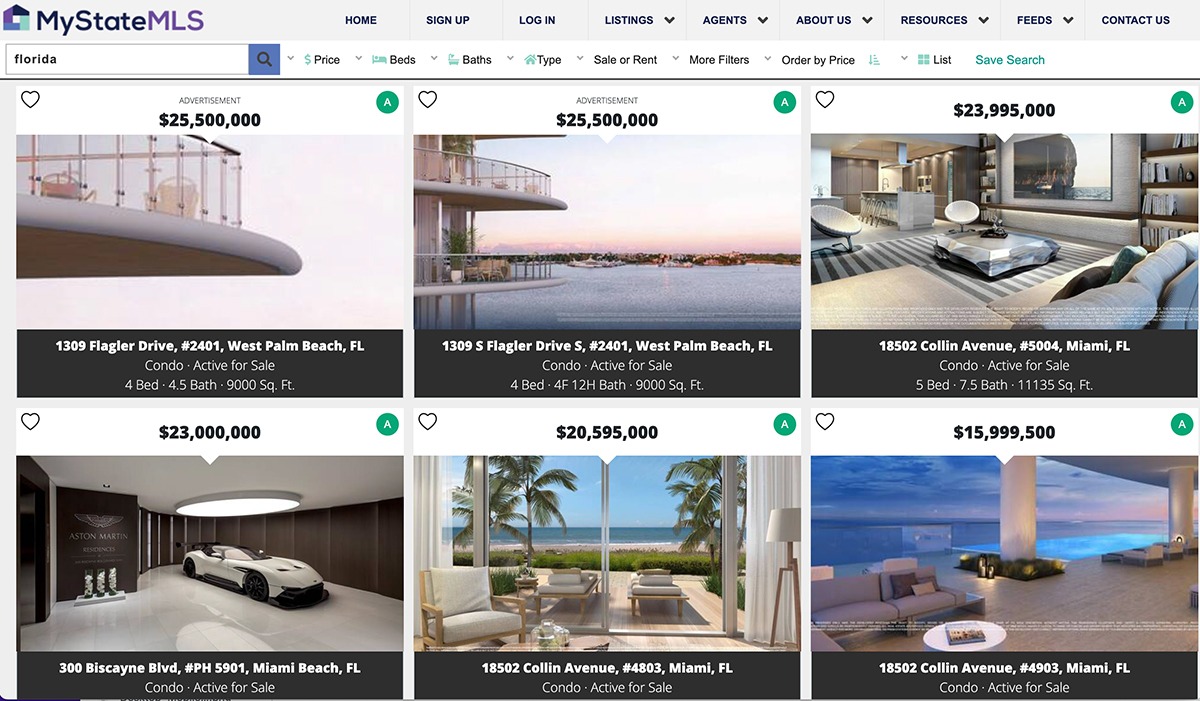My State MLS in the News: The Current State Of The Real Estate Metaverse

Oscar Wong via GettyImages
Experts look at the metaverse as a 3D model of the internet. If you've ever put on a VR headset, you've visited the metaverse
June 10, 2022
By Christina Nicholson, Special to Inman
We have roads, neighborhoods, cities, states, countries and now the metaverse. Many experts look at the metaverse as a 3D model of the internet. If you've ever put on a virtual reality headset to spend time in digital life, you've visited the metaverse.
How we interact with others has evolved from print to phones and social media. Today, it's not just about communication. It's about business. For example, instead of buying something online with your flat mobile phone or laptop screen, imagine seeing yourself in specific clothes in a store through a hologram in your living room. Yes, the virtual world, or worlds, is becoming the real world.
"We are in the very beginning of this space, founder and President of My State MLS Dawn Pfaff said. "It is starting and isn't developed yet, much like a town before even the first road or building has been built or like the internet before there were enough websites to look at."
The metaverse will be the next internet, or Web 3.0 as it's called, but space will be limited - just like real estate on land. So, people are jumping in headfirst to buy space in the metaverse and crossing their fingers that it'll be a hotspot to make money in the future.
Buying 'land' in the metaverse
So, how are speculators buying this "virtual land?" They are using cryptocurrency, an encrypted string of data that denotes a unit of digital currency.
NFT, or non-fungible token, is built using the same programming as cryptocurrency, like Bitcoin. NFTs can not be traded, exchanged, or replicated. They can represent real-world items, like real estate. Having the token reduces the probability of fraud because the token proves ownership.
Think of NFTs as a deed for a property in the real estate world. You own the deed; you own the property. But unlike a physical deed, NFTs are harder (impossible many say) to copy and use in a scam. Why should you care?
Well, the NFT represents ownership of that virtual land in the metaverse, like a deed. When the virtual land is bought and sold, it will be done by using cryptocurrency to buy and sell NFTs. Then, that can be used to buy real-world goods and services or turned into cash.
"If you didn't own the NFT and just used money or in-app currency, there would be nothing stopping a game developer or hacker from stealing your virtual land," Pfaff explained. "NFT ownership and the blockchain ensure that the person who bought it owns it and only they can transfer it."
Making money in the metaverse
Even though it's in its infancy, real estate firms are already getting into the metaverse.
Sotheby's has a storefront in the virtual reality game Decentraland. Decentraland is an online environment where users can buy land, visit buildings, walk around and meet people as avatars.
The space is a replica of Sotheby's in London, transposed into Decentraland's interactive metaverse. Users can create and explore virtual worlds and curate and sell digital artwork or non-fungible tokens (NFTs) through blockchain technology.
In 2021, Sotheby's partnered with a marketplace platform, making the first NFT sale with an artist for $17 million.
Real estate agents at eXp Realty use Virbela to get interactive training and networking in a virtual world. Virbela developed a cloud-based campus for eXp Realty for thousands of real estate agents and nearly 600 staff - who all work remotely.
Inventory in the metaverse
On February, 25 virtual private islands sold for $2.9 million in Sandbox, a game in the metaverse. The properties are located in the Luxury District with helipads and a customizable interior and exterior. Even in the metaverse, like in the real world of real estate, location is everything.
Prices for parcels near Snoop Dogg's planned partnership and virtual world in Sandbox are fetching a premium, as are parcels near the Atari development. Paris Saint-Germain football star Marco Verratti, Swiss tennis player Stanislas Wawrinka, and former Victoria's Secret model Sara Sampaio also bought into Sandbox.
"People are buying virtual land now to get ahead of the rush and own it. They're hoping one day it'll be worth lots of money," Plaff said. "Much like the pioneers moving west in the U.S. in the 1800s with the hope of gold, land and opportunity, metaverse buyers today want to get in early to make a profit, and the adventure of exploring the virtual world has some appeal."
According to CNBC, real estate sales in the metaverse topped $500 million last year and could double this year. So far, real estate sales have been concentrated on the "Big Four" - Sandbox, Decentraland, Cryptovoxels and Somnium.
There are 268,645 parcels on the four platforms, all in a variety of sizes. By limiting availability, virtual real estate is a finite resource, making it possible to drive the prices up. For example, Everyrealm, one of the most active players in metaverse real estate, paid a record $4.3 million for land in Sandbox. The company is developing 100 islands with their own villas and a related market of boats and jet skis. Ninety of the islands sold on the first day for $15,000 each and some are now listed for resale for more than $100,000.
Takeaway tips for getting started
With a surge in buyers purchasing property or virtual land in the metaverse, it's important to get ready to play online and in the real world.
Get a digital wallet
Your real wallet with paper won't work here. You'll need cryptocurrency to purchase virtual land with the right coins like you would exchange currency when visiting another country. Think of this as your virtual bank account.
Choose a buying platform
Now, you can buy property in Decentraland or The Sandbox, as already mentioned. You can also go through a third-party platform, like OpenSea, the first and largest NFT marketplace. This is suggested for first-time digital real estate investors.
Make an offer
Purchasing a digital property is a much quicker process than it is in the real world. In the metaverse, all you need to do is click on a property to buy it. Prices are driven by the market, and they can be accepted or rejected by the owner. They may also sell at an auction.
Move fast
In 2020, you could own a piece of digital real estate for a few hundred dollars. In 2021, you need a few thousand just to get started. That number continues to increase, but there's not enough known yet to know how the virtual land market will behave.
Keep learning
The metaverse is still new, constantly changing and is not regulated. Be sure you're following verified accounts, businesses and people with knowledge in the space to stay up to date with all new developments.
"Eventually, one of these metaverses will be the place to be like Facebook, Amazon and Google are now," Pfaff said about the current demand. "I think folks are speculating, trying to get in early,and fear missing out."
NFTs in the real world
NFTs aren't just being used to purchase property in the metaverse. In February of this year, a single family house in Tampa, Florida was sold to an LLC to put the property, now a business, on the market. That business became the NFT. The sale was held on Propy's new NFT Marketplace.
The NFT was transferred to the new owner's Metamask wallet within 15 minutes. Metamask is a crypto wallet and gateway to blockchain apps. According to Propy, this type of transaction minimizes costs for buyers and streamlines the purchasing process by letting them buy a property in just a few minutes.
The world's first real estate NFT plans to implement these types of sales globally, providing a single framework for purchasing real estate using blockchain technology.
When CEO Mark Zuckerberg rebranded Facebook as Meta, interest in this world skyrocketed. It's a new topic being discussed at popular conferences like SXSW Festival, Game Developers Conference and Miami NFT Week during Miami Tech Month where Miami was coined as the city of the future.
Yes, real estate and the metaverse have met, and they're working together, but how beneficial will this working relationship be? Time will tell. Very soon.

